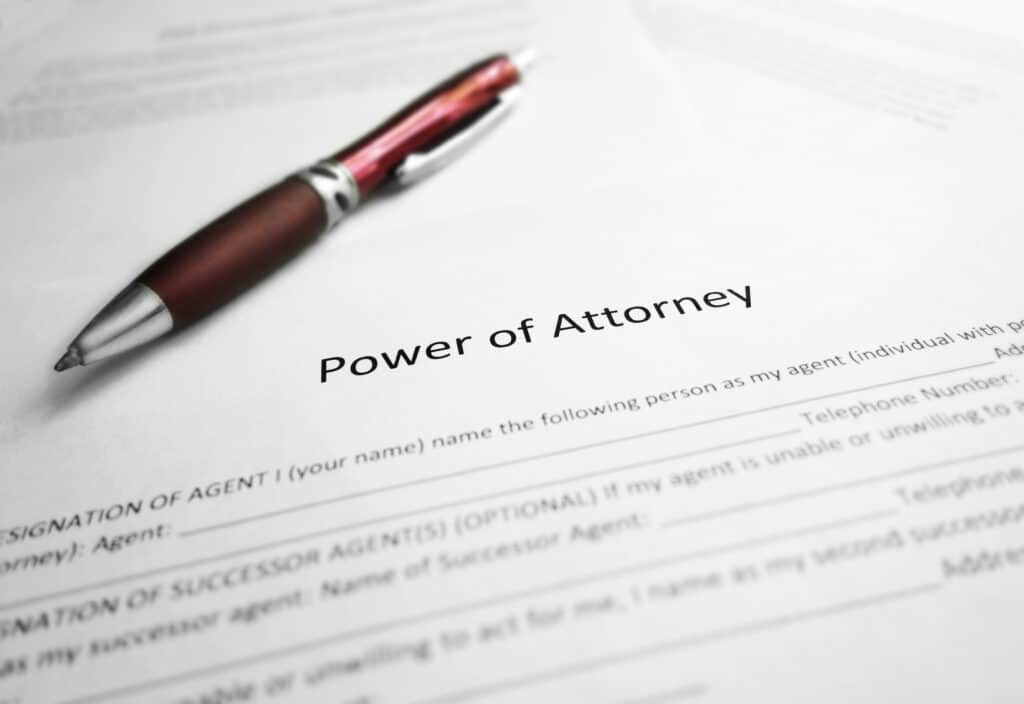A Power of Attorney (POA) legal document is signed by an individual (principal) who grants authority to a trusted individual (agent) to carry out transactions on their behalf. The instances during which this may occur are specified within the content of the document, so it is important to pay attention to every detail. The principal may grant the agent power over medical decisions, asset/property transactions, and their bank account. Clearly, this is a matter that must be presided over with extreme care.

Most individuals hire an attorney to help understand the process and create clauses that are tailored to their wishes. However nowadays, many people also resort to purchasing an online POA form by finding downloadable templates and forms. Yet, these forms are generic and most times will not cater to your specific needs. They are filled out without a present attorney and witnesses. As a result, they are frequently liable to mistakes that can easily be challenged in court at a later time.
Reasons to Avoid Using a POA Template
- No Customization
With a predetermined “one size fits all” online form, there is no interview process tailored towards your financial, medical, and legal needs. This information is crucial to determine which clauses are appropriate to add to your document, and which should be excluded. This often includes deciding whether the document executor should have the authority to distribute gifts to family members, and placing limitations on such transactions. In other instances, assets may need to be distributed accordingly one day. Lastly, perhaps the individual may need to be placed in the hands of a caregiver or nursing home. A clause may need to be added that determines who presides over this decision.
- No Professional Counsel
It is crucial to have someone with legal experience assist in important documentation execution. You must have an attorney present to assist in naming an agent and their successor. An attorney will also decide when the document’s power goes into effect: is it effective immediately or do its clauses go into effect when the principal administrator is no longer mentally capable? Additionally, an attorney has the knowledge to determine the specific wording that tends to your needs.
- No Legal Witnesses
It is important to have witnesses present when signing an important legal document. These witnesses may especially play a critical role in the future if the document’s validation is challenged in court. Witnesses can attest to the fact that the signee was in a capable state of mind to make decisions for themself.
- No Quality Assurance
Most importantly, an online POA form does not guarantee a well thought out high quality document. It also does not provide access to a professional source that will guide you through every step and explain the importance of each clause. When writing a POA, it is important to approach the process with a thorough understanding of its importance, and accordingly, the necessity to craft every clause with extreme detail and attention. When put into effect, these documents have the power to transfer assets and/or property, transfer money out of your bank account, and make medical decisions for you. It is a process that is not to be taken lightly.
As of June 13, 2021, NY has adopted a new POA form. It is important to note that if you already have a POA form in effect, you don’t need to fill out a new one. You simply need to update the one you already have. The new POA form clarifies some confusions and, to some extent, makes the process more reassuring:
- Substantial Conformance
The wording in the POA form does not have to be identical to the wording used in the statutory short form. The old form allowed for any mistake to be rendered as a reason for challenging a POA in court. The new form only needs to “Substantially conform” to the content of the statute . This makes it harder for a POA to be invalidated in court.
- No Gifts Rider
The old form limited an agent’s gift authorization to $500 a year. Any gifts over the $500 limit had to be authorized by a gift rider. A gift rider modifies a POA to allow for such transactions and when notarized, must be witnessed by two witnesses. With the newly implemented change, the gift limit has been increased to $5000 a year and the gifts rider has been eliminated. Gifts that exceed the $5,000 maximum can be accounted for with a modification section on the POA form.
- Signature at Direction of Principal
The new POA can be signed by someone, other than an agent, on behalf of the principal. However, the principal might be present at the time of signature.
- Sanctions for Bank Refusal to Honor Power of Attorney
The new law protects principals from third parties, such as banks, from refusing to accept their POA without reason. Additionally, it protects third parties when proving a POA is valid. It also gives a third party ten business days to decide whether they will accept or refuse the POA they are presented with.
An Elder Care Attorney will help you with all of your POA drafting needs. An attorney will guide you through the process step by step, while emphasizing and explaining the importance of each clause. An elder care attorney is also most up to date on the recent changes the NY government has made to the POA form and will guide you through these changes whether you are updating an old form or writing a new one. For further information on how to draft a POA form, please contact the Law Office of Inna Fershteyn at (718) 333-2395 to obtain aid in legal document drafting.







